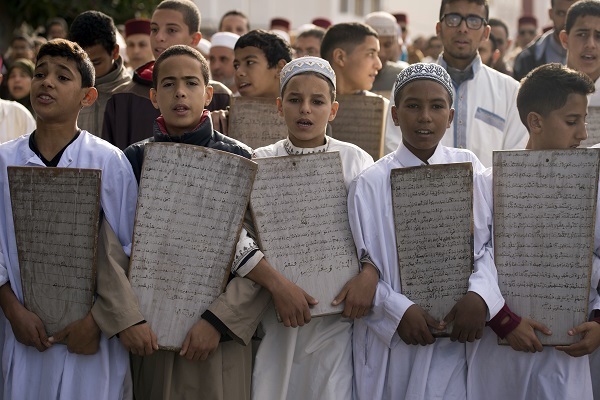New Regulations Pose Challenges to Quranic Educational System in Morocco


The Awqaf and Islamic affairs ministry issued the regulations on Mach 18, according to Madar24.
The rulebook has introduced difficult conditions for schools and educational institutions, which find it difficult to implement it, especially in areas with poor infrastructure and lack of facilities.
One of the conditions is that educational institutions are obliged not to accept students who are not classified in the levels of formal education. This is while these students are the main pillars of Quran memorization courses in schools.
Educational activists believe that the announced conditions will have a negative impact on traditional education as the main flag-bearer of Quran memorization teaching.
In particular, some of these conditions emphasize the construction of separate buildings based on age groups and cooperation with neighboring Quranic schools, something that is difficult to achieve in many remote areas.
It is also considered unfair by observers to link financial support to student numbers and academic outcomes, given the significant differences in the resources and capabilities of one institution to another.
Read More:
What is exacerbating the situation is the short time given to institutions to comply with the new rules and requirements. They must meet these requirements by the end of May 2025, putting dozens of schools at risk of losing support or even shutting down completely.
Educational activists emphasize that fulfilling these conditions without the gradual implementation or support of the Awqaf ministry could weaken the traditional educational fabric and deprive many students of the opportunities to receive education within the framework of an authentic and traditional religious education.
4280145



